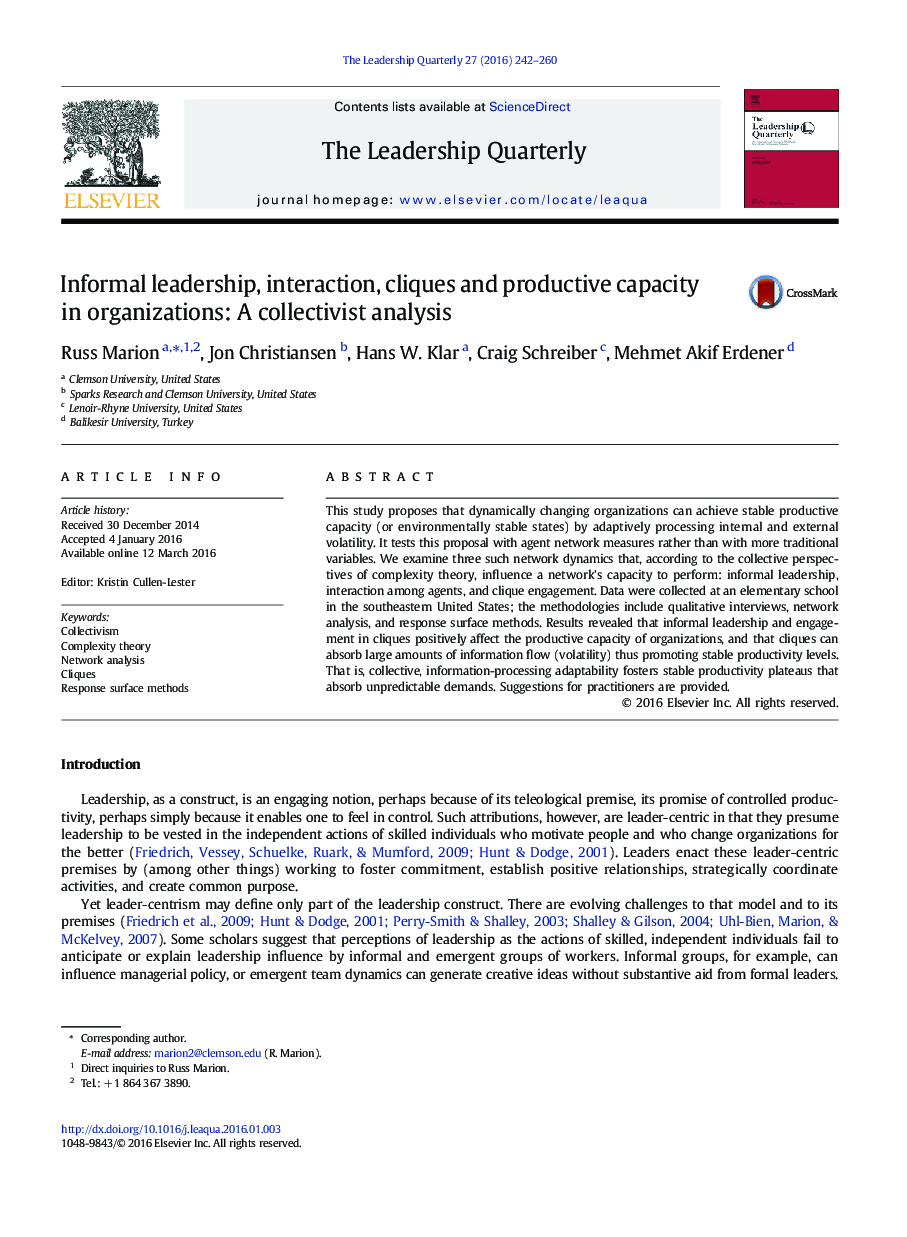| Article ID | Journal | Published Year | Pages | File Type |
|---|---|---|---|---|
| 887681 | The Leadership Quarterly | 2016 | 19 Pages |
This study proposes that dynamically changing organizations can achieve stable productive capacity (or environmentally stable states) by adaptively processing internal and external volatility. It tests this proposal with agent network measures rather than with more traditional variables. We examine three such network dynamics that, according to the collective perspectives of complexity theory, influence a network's capacity to perform: informal leadership, interaction among agents, and clique engagement. Data were collected at an elementary school in the southeastern United States; the methodologies include qualitative interviews, network analysis, and response surface methods. Results revealed that informal leadership and engagement in cliques positively affect the productive capacity of organizations, and that cliques can absorb large amounts of information flow (volatility) thus promoting stable productivity levels. That is, collective, information-processing adaptability fosters stable productivity plateaus that absorb unpredictable demands. Suggestions for practitioners are provided.
